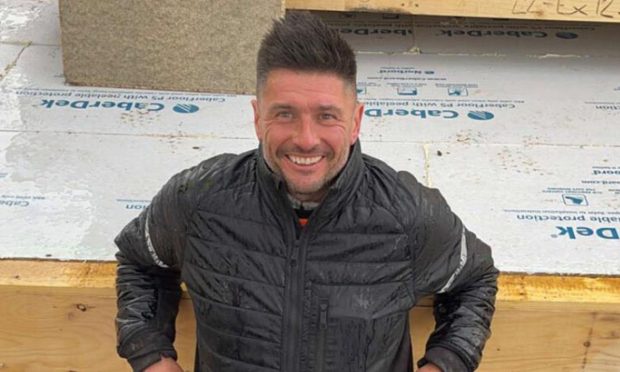A Perth construction boss has agreed to surrender £30,000 of drug-dealing proceeds following nearly five years of negotiations with prosecutors.
Dean Moir was originally accused of making more than £620,000 from his illicit enterprise.
He and accomplice Paul Hannigan were caught by police chopping up the Class A drug with caffeine in a kitchen drug factory in October 2018.
Both men were jailed for three years in July the following year.
Proceeds of crime
The Crown later launched a Proceeds of Crime action against Moir in a bid to reclaim the cash he made from his illicit trade.
Prosecutors initially claimed the 50-year-old had made a profit of £620,371 – more than £100,000 every year for six years.
However, this week, following negotiations between lawyers and prosecutors that have been rumbling on since 2019, it was accepted Moir had benefited by just £30,000.
A confiscation order for the full amount was made at Perth Sheriff Court.
Moir, managing director of Canmore Construction, was not present when the order was made by Sheriff Jennifer Bain KC.
Solicitor David Holmes described his client’s finances as a “complex” matter which involved properties in his name purchased before 2000.
Police had already seized just over £1,500 cash and Moir will have to pay back the remaining amount within six months.
White powder down the sink
Previously, the court heard how Moir, then a self-employed joiner, threw a frying pan of cocaine into a sink when police raided the drug factory at Hannigan’s home in Ballantine Place.
Fiscal depute Michael Sweeney said the pair were caught cutting the cocaine with caffeine and other substances in an effort to maximise their profits.
“Moir was holding a frying pan full of white powder,” he said.
“He threw the contents into a basin of water in the sink.
“He was wearing blue latex gloves with powder residue on them.
“They were tested and proved negative for controlled drugs.”
Mr Sweeney said: “Police formed the impression he had been adulterating cocaine within the kitchen prior to their arrival.
“The powder in the frying pan was wet.
“There was some in the sink and basin. It was a wet paste.
“The maximum potential illicit value was between £11,150 and £22,300.”
The court heard Moir, of Almond Gardens, had earned a significant income through his joinery business.
He was described as a family man with a good work ethic.
For more local court content visit our dedicated page or join us on Facebook.












